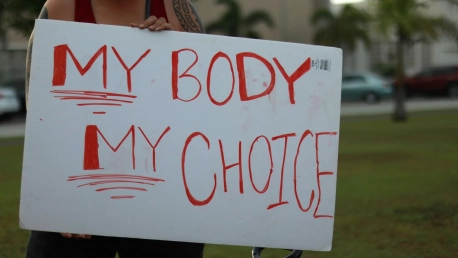The Supreme Court’s decision to overturn Roe v. Wade has sparked an intense debate and significant concern over the future of women’s rights in the United States. The ruling, which eliminated the federal protection of a woman’s right to choose an abortion, marked a seismic shift in American legal and social landscapes. Many have pointed out that this decision feels like a regressive step, unearthing buried contradictions within American history, where promontory ideals of liberty and happiness were often denied to vast portions of the population. The setbacks for women, particularly low-income women and women of color, cannot be overstated.The immediate aftermath of the ruling introduces new tensions and uncertainties, especially for young women like Clara Chiu, who has written eloquently on the topic. She notes that while abortion laws in her home state of California remain unchanged, the ruling compels her to think about the varied legal landscapes in other states as she considers college options. This fluctuating landscape exemplifies a broader issue where the absence of a federal mandate allows states to independently govern women’s reproductive rights. Justice Samuel Alito, in his justification for the ruling, emphasized that the U.S. Constitution does not explicitly mention women’s rights due to its male authorship, a reflection of the historical constraints women have faced.
Historical Bias and Women’s Rights
The contention that abortion rights are not deeply rooted in the nation’s history, as argued by Justice Alito, is vigorously countered by Chiu and many others. They argue that resistance to unjust laws has always been integral to the American ethos. The Constitution, revered as a document of freedom, was indeed written in a different era, when the notions of equality and liberty were not extended to everyone, particularly women and people of color. This backdrop shows that historical biases have long influenced the governance of women’s bodies and rights.Moreover, while many states have moved to restrict access to abortion services, the consequences for communities are profound. The social, economic, and psychological impacts on women who are denied autonomy over their bodies are far-reaching. The Dobbs ruling, as interpreted by many, sends a clear message that women’s rights are negotiable and heavily dependent on geographic and socio-economic variables. This disparate treatment highlights the fragility of rights thought to be long-established and prompts urgent discourse on how to protect and advance these rights in the modern era.
Broader Implications for Human Rights
The Supreme Court’s decision to overturn Roe v. Wade has ignited a fervent debate and deep concerns regarding the future of women’s rights in the United States. By abolishing federal protection for a woman’s right to choose an abortion, this ruling marks a profound change in both legal and social spheres. Critics argue that it represents a regressive step, highlighting long-standing contradictions in American history, where ideals of liberty and happiness have frequently been denied to many. This setback will disproportionately affect low-income women and women of color.In the wake of the ruling, new tensions and uncertainties have emerged, particularly for young women like Clara Chiu. Clara, who has eloquently discussed the issue, notes that while abortion laws in her home state of California remain unchanged, the ruling forces her to consider the differing legal landscapes as she explores college options. This inconsistent landscape underscores a larger issue: the lack of a federal mandate allows individual states to dictate women’s reproductive rights. Justice Samuel Alito defended the ruling by emphasizing that the U.S. Constitution, crafted by men, doesn’t explicitly mention women’s rights, reflecting historical limitations women have endured.









